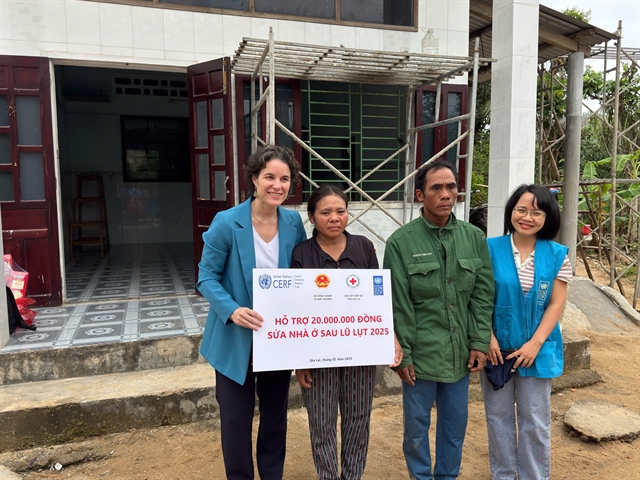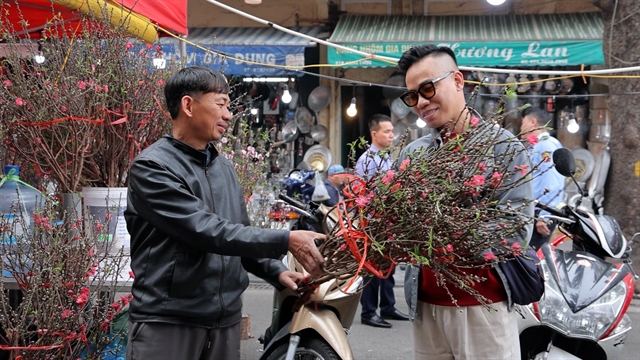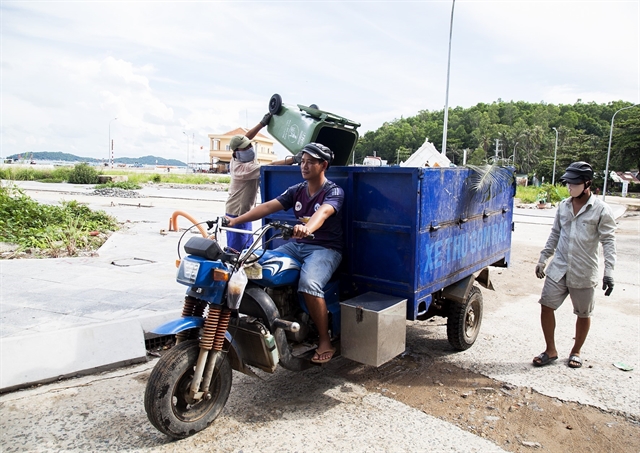 Society
Society

The Cửu Long (Mekong) Delta province of Kiên Giang has begun to increase waste treatment on islands and along coasts to protect the environment.

|
| Collecting waste in Hà Tiên City in Kiên Giang Province. — VNA/VNS Photo Hồng Đạt |
KIÊN GIANG — The Mekong Delta province of Kiên Giang has begun to increase waste treatment on islands and along coasts to protect the environment.
It has two island districts, Phú Quốc and Kiên Hải, coastal cities Hà Tiên and Rạch Giá and coastal districts Kiên Lương, Hòn Đất, Châu Thành, An Biên, and An Minh.
Phú Quốc and Kiên Hải, which are tourist attractions, are stepping up waste treatment and propagating it.
In June last year the former chose the first Saturday of every month as ‘the Day for Phú Quốc Environment’. The campaign has improved public awareness of sanitation, environmental protection and the efficiency of rubbish collection.
The island generated around 155 tonnes of rubbish a day in 2018, the last year for which data is available, but only collected 90 tonnes and dumped them in landfills.
Kiên Hải now generates 14.6 tonnes of waste a day and collects 80 per cent of it and dump in landfills. In areas where rubbish is not collected, authorities tell residents to bury or burn them.
The province's Department of Natural Resources and Environment has asked the Ministry of Natural Resources and Environment and the People’s Committee to allocate funds to expand rubbish collection and close temporary landfills, build waste transit stations and solid waste treatment plants in Phú Quốc and Kiên Hải, and create models for collecting and treating waste on islands.
It wants island communes far from the mainland like Hòn Đất and Thổ Chu in Phú Quốc District to be given priority in building manual incinerators to burn household rubbish.
Installation of one such incinerator, diesel-fuelled, in Hà Tiên City’s Tiên Hải Island Commune in 2017 has improved waste treatment there.
It has a daily capacity of 1.5 tonnes.
Phan Chí Linh, a worker belonging to the Tiên Hải waste collection group that manages the incinerator, said seven to eight cubic metres of rubbish arrive daily.
After collecting the rubbish, the group transports it to the incinerator and dries it first, he said.
It has advised residents to clean up their neighbourhoods and put waste in designated places so that it can collect all the waste.
Now it regularly cleans up streets, beaches and tourism areas.
Besides installing the incinerator, Tiên Hải Commune has also been exchanging plastic waste for rice since May.
This campaign was created by the local units of the Fatherland Front Committee, the Women’s Union, the Farmers' Association and the Veterans' Association.
Members of the public can come to the commune's People’s Committee to exchange two kilogrames of plastic waste for one kilogramme of rice every Thursday.
Huỳnh Thị Lỵ, who earns a living by breeding fish in floating cages in Tiên Hải’s Hòn Tre Hamlet, said the campaign has improved her and other people’s awareness of waste treatment.
“The marine environment has improved significantly, improving conditions for breeding fish.”
Locals have taken to the campaign and have so far exchanged 200kg of plastic waste for rice, according to the commune's People’s Committee. — VNS